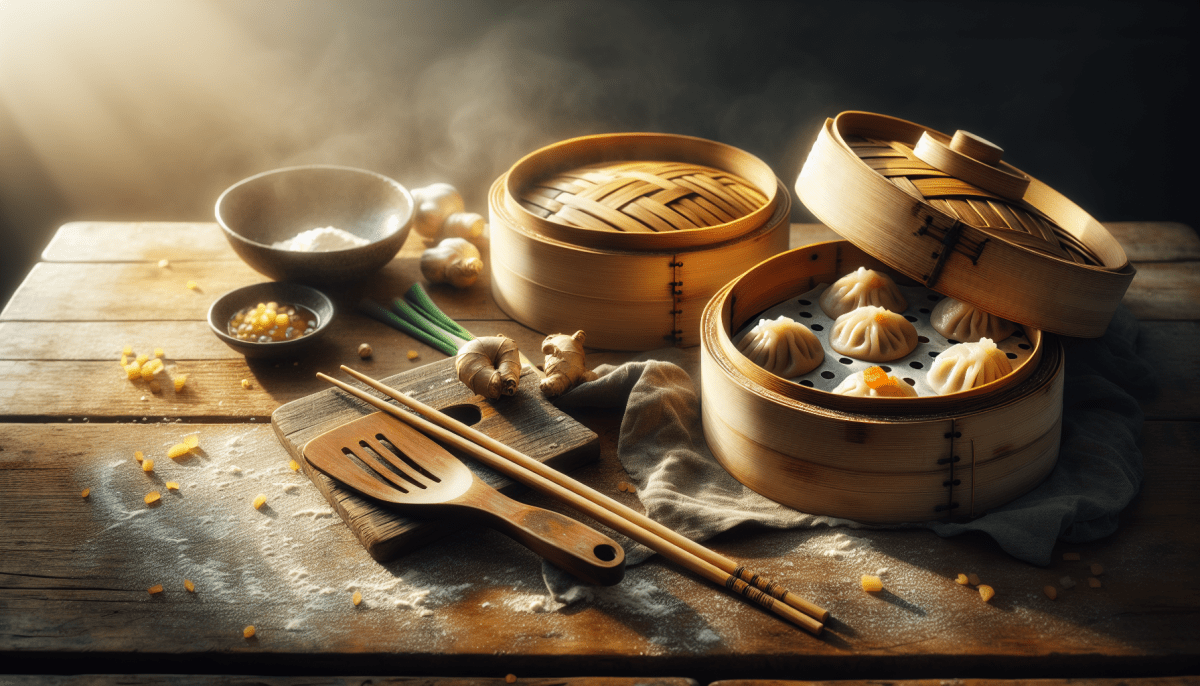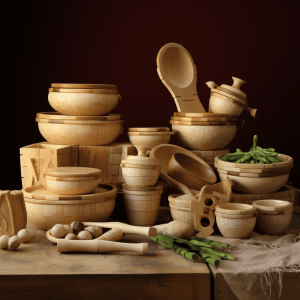Bamboo, with its natural strength, durability, and versatility, has been an indispensable part of culinary traditions in many cultures for centuries. From Asian delicacies to classic western recipes, bamboo cookware has proven itself to be an excellent tool with immense culinary potential. Its unique properties make it a perfect choice for preparing, cooking, and serving a variety of dishes.
One of the standout qualities of bamboo as a cooking material is its natural resistance to heat. Bamboo utensils and steamers excel in retaining heat while allowing it to distribute evenly, ensuring thorough and gentle cooking. Whether you are steaming dumplings, vegetables, or fish, using bamboo steamers enhances the flavor, texture, and nutritional value of your food. The porous nature of bamboo also helps to absorb excess moisture, preventing sogginess and resulting in perfectly cooked dishes.
Additionally, bamboo cutting boards have become increasingly popular due to their reliable strength and sustainability. These boards offer excellent durability while being gentle on knife blades, reducing wear and tear. The natural anti-microbial properties of bamboo make it a hygienic choice, preventing the growth of bacteria and keeping your kitchen clean and safe. Furthermore, bamboo cutting boards are known for their attractive grain patterns, adding a touch of elegance to any kitchen countertop.
Bamboo's versatility extends beyond just cooking vessels and cutting boards. It can also be used to make serving bowls, trays, and utensils. These eco-friendly alternatives not only add a rustic charm to your dining experience but also help reduce the use of plastic or disposable items, leading to a more sustainable lifestyle. Bamboo's light weight and easy-to-clean nature make it convenient for outdoor picnics or gatherings, ensuring a hassle-free dining experience wherever you go.
Bamboo Cooking Techniques: From Steaming to Grilling Delights
When it comes to cooking with bamboo, the culinary possibilities are endless. Bamboo cookware is not only sustainable and environmentally friendly, but it also adds a distinct flavor and aroma to your dishes. In this article, we will explore some traditional bamboo cooking techniques that have been passed down through generations.
One of the most popular ways to cook with bamboo is through steaming. Bamboo steamers are highly versatile and can be used to steam a wide variety of ingredients, from vegetables to dumplings. The bamboo steamer's unique design allows for even heat distribution, resulting in perfectly cooked and tender dishes. To use a bamboo steamer, simply place it over a pot of boiling water and let the steam work its magic.
Grilling with bamboo is another culinary tradition that dates back centuries. Bamboo skewers are commonly used to create delicious grilled kebabs. The bamboo not only adds a subtle earthy flavor to the ingredients, but it also helps in retaining moisture and preventing the food from sticking to the grill. Soak the bamboo skewers in water for about 30 minutes before using them to prevent them from burning during grilling.
Lastly, bamboo can also be used as a wrapping material for cooking. Bamboo leaves or bamboo mats are often used to wrap food like sticky rice or fish before cooking. This technique allows the flavors to infuse, creates a unique aroma, and keeps the food moist and tender. Just wrap the ingredients tightly in the bamboo leaves or mats and either steam or bake them.
Diverse Culinary Traditions: Bamboo's Role in Global Cuisine
Bamboo, a versatile and sustainable resource, has played a significant role in various culinary traditions around the world. Its unique qualities have made it an essential ingredient in cooking and a material for creating cookware across many diverse cultures.
In Southeast Asia, bamboo demonstrates its importance as a cooking material. Across countries like Thailand, Vietnam, and Indonesia, bamboo steamers are commonly used to prepare delicate and flavorsome dishes. These steamers are perfect for creating healthy and light meals, ranging from steamed vegetables and dumplings to meats and fish. The bamboo material helps to retain moisture and infuse a subtle yet distinct aroma into the food.
Similarly, in East Asia, specifically China and Japan, bamboo has long been embraced as a vital element of their culinary traditions. One prominent example is the use of bamboo chopsticks, which are an integral part of enjoying meals in these cultures. The natural texture and grip of bamboo make it an ideal material for chopsticks, allowing for precise handling and a traditional dining experience.
Additionally, bamboo plays a significant role in the field of Chinese cuisine. Bamboo steamers, wok spatulas, and bamboo cutting boards are commonly used in Chinese kitchens. These cookware items are renowned for their durability, eco-friendliness, and ability to withstand high temperatures. Bamboo cutting boards are especially favored as they are less likely to dull knives and naturally resist bacteria growth, making them a healthier choice for food preparation.
Beyond Asia, Africa has also embraced the use of bamboo in cooking. In countries like Cameroon, Ethiopia, and Madagascar, bamboo shoots are harvested and used as a nutritious ingredient in various dishes. These shoots possess a tender texture and a mild flavor, making them a preferred addition to stews, salads, and stir-fries. Bamboo also plays a role as skewers for kebabs, adding a unique touch to grilled dishes across the continent.
The Sustainability of Bamboo Cookware: Eco-friendly and Stylish
Bamboo cookware has gained significant popularity in recent years due to its sustainable nature and unique style. This eco-friendly alternative to traditional cookware materials such as plastic or metal offers a range of benefits that make it a favorite among environmentally conscious individuals.
One key advantage of bamboo cookware is its sustainability. Bamboo is known for its rapid growth, making it a highly renewable resource. Unlike traditional wood, harvesting bamboo does not require cutting down the entire plant, as it can regenerate from its roots. This ensures that bamboo forests can be sustainably managed without causing significant harm to the environment.
Additionally, bamboo cookware is biodegradable, meaning it can naturally decompose over time. This is especially important considering the growing concern over plastic pollution. By opting for bamboo cookware, individuals can significantly reduce their ecological footprint and contribute to a cleaner and healthier planet for future generations.
Apart from its sustainability, bamboo cookware also adds a touch of style to any kitchen. Its natural appearance and smooth texture provide a modern and elegant aesthetic. Whether it's bamboo cutting boards, steamers, or utensils, these eco-friendly products can easily enhance the overall look of one's culinary space while aligning with the principles of sustainable living.
Bamboo Cookware
Sustainable and Stylish Cookware to Elevate Your Kitchen Experience
Product information
Product Review Score
4.38 out of 5 stars
126 reviews


